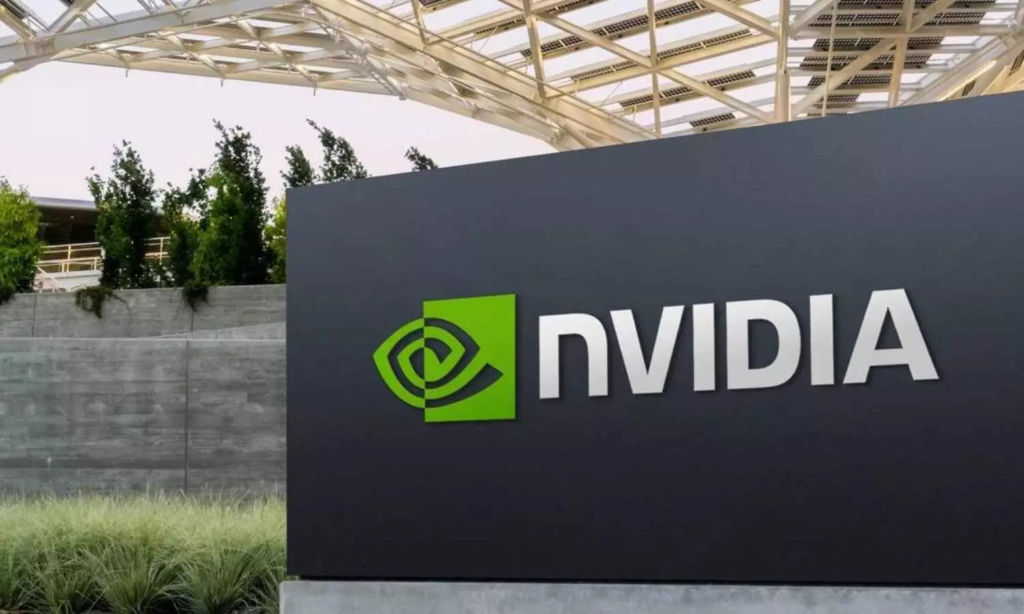U.S. Bans Nvidia H20 Chip Sales to China: Reasons, Market Impact, and Reactions
The United States has imposed a new export restriction on Nvidia, prohibiting the sale of its H20 artificial intelligence (AI) chips to China.

This move, announced by the Trump administration, escalates the ongoing U.S.-China tech rivalry and has sent ripples through global markets.
Why Did the U.S. Ban Nvidia’s H20 Chip Sales?
The U.S. government cited national security concerns as the primary reason for the ban. Specifically, officials are worried that Nvidia’s H20 chips, designed for AI applications, could be used in Chinese supercomputers with military applications.
The U.S. Department of Commerce notified Nvidia on April 9 that the H20 chip would require an export license to be sold in China, a restriction that was made indefinite on April 14.
The government fears these chips could enhance China’s ability to develop advanced AI systems, potentially giving Beijing a strategic edge in military technology.
The H20 chip was created by Nvidia to comply with earlier U.S. export controls, which banned the sale of more advanced chips like the H100 to China starting in 2022.
Despite its reduced capabilities, the H20 is still powerful for AI tasks like inference—where AI models generate answers and its high-speed memory connections make it valuable for supercomputing. The U.S. believes these features pose a risk if accessed by China.
How Will This Impact the Market?
The ban is a significant blow to Nvidia, a leading player in the AI chip market. The company announced it will take a $5.5 billion charge in the current quarter to cover unsellable H20 inventory and related commitments.
Nvidia’s stock dropped about 6% in after-hours trading following the news, reflecting investor concerns about the loss of China, which accounted for 13% of Nvidia’s $17 billion in revenue last year.

The restriction could also reshape the AI chip market in China. Chinese tech giants like Tencent, Alibaba, and ByteDance, which have relied on H20 chips, may turn to domestic alternatives like Huawei’s Ascend series.
Analysts estimate Nvidia shipped over 1 million H20 chips to China in 2024, generating $12 billion in revenue. A prolonged ban could erode Nvidia’s dominance in this key market, boosting Chinese chipmakers.
Globally, the ban may disrupt supply chains and increase demand for Nvidia’s chips in other regions, potentially driving up prices.
However, it could also accelerate China’s push for self-sufficiency in semiconductors, reducing reliance on U.S. technology over time.
What Is the Market Value Impact on Chips?
The H20 chip, priced between $12,000 and $13,000 per unit, is a critical revenue driver for Nvidia in China.
With the ban, Nvidia’s unsellable inventory could lead to a significant write-down, as seen in the $5.5 billion charge.
The broader AI chip market may see short-term price volatility as Chinese firms, which stockpiled H20 chips anticipating restrictions, shift to alternatives.
Chinese companies have a buffer of 6 months to a year due to their stockpiling, but the long-term shift to domestic chips could depress demand for Nvidia’s products.
Meanwhile, black-market trade in banned chips, like the A100 and H100, which sell for up to $20,000 each in China, may persist, complicating enforcement.
How Has China Reacted?
China’s Ministry of Defense issued a statement criticizing the U.S. for using “wanton force” in its trade policies, suggesting the ban won’t “Make America Great Again.”
Beijing has not announced specific retaliatory measures, but experts anticipate China will double down on developing its own AI chips. Chinese firms have already increased orders for Huawei’s chips, and the government is pushing for domestic sourcing to reduce dependence on foreign technology.
Earlier this year, China introduced energy efficiency rules that threatened Nvidia’s H20 sales, signaling a strategic move to favor local chipmakers.
Some Chinese companies are balancing compliance with Beijing’s guidance by buying both H20 and Huawei chips, hedging against further U.S. restrictions.
What Are Experts Saying?
Analysts and industry experts have mixed views on the ban’s implications. Nori Chiou, an investment director at White Oak Capital Partners, argues that the restrictions could backfire by pushing Chinese customers toward Huawei’s AI chips. “
Huawei’s chip design and software capabilities are likely to advance quickly as it gains more customers and development experience,” Chiou said.
Chris Miller, a semiconductor expert at Tufts University, sees the ban as a partial win for China, noting that H20 chips, though downgraded, outperform many Chinese alternatives.
He warns that China’s continued access to such chips, even through gray markets, underscores the difficulty of enforcing export controls.
On the other hand, some experts believe the ban strengthens U.S. leverage in the AI race.
The Institute for Progress, a think tank, praised the U.S. Commerce Department for acting swiftly to block H20 shipments, arguing that it prevents China from acquiring 1.3 million chips that could fuel advanced AI development.
They urge tighter enforcement and updates to export controls to address inference-focused chips like the H20.
The ban marks a new chapter in the U.S.-China tech war, with both sides digging in. Nvidia is exploring ways to adapt, possibly by developing new chips that comply with U.S. and Chinese regulations.
Meanwhile, China’s investment in domestic chipmakers like Huawei and Cambricon is likely to intensify, potentially reshaping the global semiconductor landscape.


![President Donald Trump, right, and British Prime Minister Keir Starmer at the White House on February 27 [Carl Court/Pool via AP Photo]](https://worldinfo.news/wp-content/uploads/2025/04/UK-US-Trade-Deal-Talks-Progress-but-No-Guarantees.jpeg) UK-US Trade Deal Talks Progress, but No Guarantees
UK-US Trade Deal Talks Progress, but No Guarantees  India Imposes 12% Tariff on Steel to China
India Imposes 12% Tariff on Steel to China  China Warns Countries Against Siding with U.S. in Trade War
China Warns Countries Against Siding with U.S. in Trade War  China Calls on Trump to Reverse Tariff Policy
China Calls on Trump to Reverse Tariff Policy  U.S. Inflation drops to 2.4%
U.S. Inflation drops to 2.4%  Xi Jinping Accuses Trump of Global Bullying
Xi Jinping Accuses Trump of Global Bullying